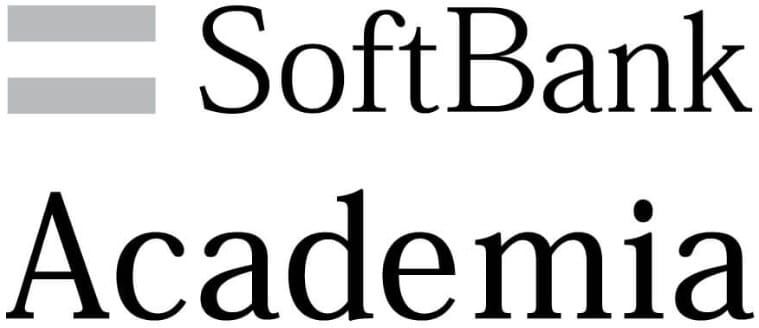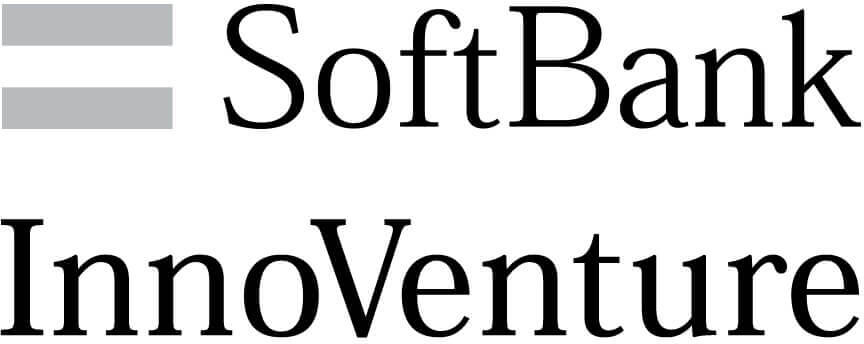Graduate Career & Skills Development
Supporting employees in developing their own career paths
SoftBank Academia
Be the next leader of the SoftBank Group!

When SoftBank’s Next 30-Year Vision was made public, Masayoshi Son announced the creation of SoftBank Academia, with the goal of identifying and training his own potential successor. The SoftBank Academia program was subsequently launched on July 28, 2010.
The program, taught by Mr. Son himself in his capacity as founding principal, comprises more than just lectures. It also includes sessions in which students offer mutual feedback and spur each other on through practical exercises. The program is not exclusive to SoftBank employees, and has been open to students from outside the SoftBank Group since June 2011. Students admitted to the program are selected following a thorough review process; they are highly motivated individuals with diverse backgrounds who are eager to inspire and be inspired as they aim to be the next leader of the SoftBank Group.
SoftBank InnoVenture
(New Business Proposal System)
Embrace business innovation and a spirit of venture
Try launching a new business yourself

Since fiscal 2011 we have implemented an internal start-up program (SoftBank InnoVenture*) that supports employees in putting new business proposals into practice.
Under the program we invite proposals from all employees for new businesses that can play a part in turning SoftBank into a strategic synergy group of 5,000 companies.
This is one element of our vision as we strive to be the corporate group needed most by people around the world and to be listed among the world’s top 10 in terms of market capitalization (at the 200 trillion yen level), both of which were aims indicated in SoftBank’s Next 30-Year Vision of 2010.
The program has attracted a steady stream of highly original and innovative ideas that will enable the SoftBank Group to make the next leap forward.
- ※InnoVenture is a neologism formed by combining Innovation and Venture.
- Anybody can propose ideas
-
Anybody who is an employee of a SoftBank Group company can propose an idea.
Proposals made jointly with partners outside the SoftBank Group are also allowed. In addition, since fiscal 2013 proposals have been accepted from new graduates with SoftBank job offers.
- All ideas welcome
-
Contributors can propose any type of business as long as it is in keeping with the SoftBank Group Corporate Philosophy of “Information Revolution—Happiness for everyone.”
- Get involved in the business
-
If a business proposal passes the screening process and is accepted for commercialization, it is usually possible for the proposer to become involved in developing the business. Several previous proposals have already been launched as businesses.
- Innoventure Lab
-

In fiscal 2016 we launched the Innoventure Lab program, enabling employees to acquire a wide range of expertise, including knowledge and know-how relating to start-ups, and information on how to approach business planning. Participation in the program is open to any SoftBank Group employee* who is interested in SoftBank Innoventure and new business start-ups.
- ※New graduates with SoftBank job offers are also accepted.
Innoventure Lab provides a wide range of training courses that aim to enhance the level of knowledge and skills with regard to starting new businesses across the workforce. The program also offers communication tools that participants can use to communicate among themselves, and transmits up-to-date information and news to help with forming teams and planning new businesses.
SoftBank University Training System
SoftBank University aims to foster personnel who will contribute to achieving the SoftBank Group Corporate Philosophy. To that end, it offers all SoftBank Group employees opportunities to share their ambitions and learn together, spurring each other on.
SoftBank University offers three programs: the SoftBank Business Program, the Seniority-Based Program, and the Next-Generation Management Personnel Program. It respects the diversity that will be a source of sustained growth for the Group and aims to foster personnel who demonstrate a wealth of individuality.
SoftBank Business Program
SoftBank University supports skills development for people who enjoy the constant change at SoftBank and grasp every opportunity to take on a new challenge.
Employees learn the fundamentals necessary for work, such as thinking skills and how to communicate effectively.
Management
Thinking skills
Communication
Business basics
The skills necessary in a constantly changing SoftBank are organized into five categories.
Global
Finance
Statistics
Technology
Office
The courses offered provide employees the chance to think about the way they work at SoftBank and to learn about SoftBank’s brand and values.
Career & mindset
Brand & values
Seniority-Based Program
SoftBank University supports skills development for people who enjoy the constant change at SoftBank and grasp every opportunity to take on a new challenge.
New recruits
Mentors
2nd-year employees
3rd-year employees
New Section Heads
New Department Heads
Next-Generation Management Leaders Program
This program enables employees to acquire the knowledge and skills necessary to target a place among SoftBank’s next generation of management leaders.
Leadership
Position/Role-Based Training System
We also offer the training courses and schemes below catering to different positions or roles.
During the period between prospective employees receiving their job offers and actually starting at the company we help them to learn more about work, aiming to boost their motivation to join SoftBank and enable them to ease smoothly into their lives as working adults.
We offer e-learning courses to help them understand SoftBank’s history, brand, and business etiquette, and acquire business skills such as the ability to use Excel.
In addition, we hold events such as round-table discussions with people already working at the company to allow the prospective new recruits to hear at first hand about how the employees go about their work.
Prospective employees are also eligible for financial help (i.e., payment of examination fees and/or partial funding of tuition) to acquire specific qualifications.
We conduct training for all new recruits together for the first two weeks or so after they join the company.
Engineer-track recruits then go on to take around three more weeks of training. During these first two to five weeks they are expected to make the transition to a working adult’s mindset while learning about business etiquette and document preparation, as well as work-related computer skills, and thinking skills.
This is followed by a series of practical exercises that cover the process from coming up with a new plan through to presentation.
The training, which includes multiple exercises, is designed to be a first step in helping recruits become a businesspeople who can learn proactively and take action.
Orientation |
An overview of the training for new recruits is provided, and behavioral guidelines to be observed during the training are set out |
|---|

Basic SoftBank-related knowledge |
Trainees acquire the knowledge necessary to work as SoftBank employees, including telecommunications basics and the business flow |
|---|

Business mindset |
Trainees role-play a series of actual work tasks to transition to a working adult’s mindset and gain an understanding of the importance of business skills |
|---|

PC setup |
Trainees learn how to use the company’s PCs, and gain a broad overview of the in-house IT system |
|---|

Business etiquette |
Trainees become aware of the working adult’s mindset and learn business etiquette |
|---|

Business documents |
Trainees learn how to prepare business documents (emails, meeting minutes, etc.) |
|---|

Software skills |
Trainees learn basic skills for office software such as Excel and PowerPoint (including how to organize and present content, as well as how to use the software itself) |
|---|

Design thinking |
Trainees gain an understanding of the problem-solving process from identifying a problem to determining new solutions |
|---|

Planning & presentations |
Trainees learn the stages of the business planning process from addressing an issue by coming up with a plan, through drafting a written business proposal, to presenting the proposal to others |
|---|
For engineer-track recruits and other new recruits whose assigned departments require specialist knowledge, we conduct technical training for approximately three weeks following the core training.
During the training they learn about networks, including the telecommunications setup and LAN architecture, as well as the basics with regard to topics such as security, the systems development process, and programming.
New recruits are supported by assigning them a mentor who provides OJT (on-the-job training) and maintains close communication on a day-to-day basis to help the new employee get used to the organization and take charge of their own work as soon as possible.
We conduct follow-up training for employees in their second year after joining the company as new graduates. One aim of the training is for trainees to reexamine themselves objectively and understand what they have learned to do during their first year in the company, as well as what challenges they must overcome to be able to work independently in future.
Other aims are to enable trainees to learn the skills required in the second year and to boost their motivation when tackling subsequent work.
The training for young employees in their third year after joining the company as new graduates allows trainees to look back at their experiences since joining and reevaluate their own strengths and the roles required of them.
Trainees focus on the person they want to be and identify the challenges they must overcome, using this as the basis to take action. They also learn the skills required in the third year. In addition to boosting motivation, the training also helps trainees to take practical action.
Managers are required to take responsibility for achieving their organizational unit’s goals and to unify their organizational unit through leadership.
We therefore offer training that enables them to successfully combine business management with management of people.
Other Initiatives Unique to SoftBank
The SoftBank Group further improved its training system by launching the Internally Certified Instructor (ICI) system in June 2009.
The aim of this system is to provide personnel development and training that conveys the realities in the workplace and has an immediate impact by enabling like-minded employees to act as instructors providing training that reflects their own insight, knowledge, and experience.
Because these employees provide training on specialist knowledge used in the work they perform on a day-to-day basis, trainees are able to learn extremely practical information, such as, for example, when a Finance Group employee teaches other employees about the basics of financial accounting.
This system allows training based on actual work requirements and enables us to raise basic standards and boost levels of attainment across the entire workforce.
- ※ICI:Internally Certified Instructor
We offer the SoftBank Group’s own distinctive learning style, making full use of ICT by employing formats such as videolink training that simultaneously connects instructors to multiple remote training venues, as well as online training that connects trainees and instructors in distant locations, livestreaming of lectures, and streaming of archived videos. Individual employees can take steps to improve their skills whenever and wherever they choose.
Knowledge Marche was started in July 2013 to provide opportunities for employee-originated learning aimed at fostering a culture of mutual education. Employees sharing knowledge are referred to as organizers, while those taking part are called participants, and they learn together on an equal basis.
The scheme allows any employee with knowledge or insight to become an organizer, and goes beyond the traditional training approach to promote the sharing of knowledge and insights through small-group study sessions, workshops, lecture meetings, and more.
We offer SoftBank’s own business statistics test and IT test, aiming to make employees aware of their statistical capabilities and IT skills—which are necessary to adapt to changes in our business—and to enhance those skills.
Employees can assess their skills using SoftBank’s own original test questions, developed and editorially supervised by experts inside and outside the company.
- ※Testing has no bearing whatsoever on performance appraisals or other evaluation of employees.
